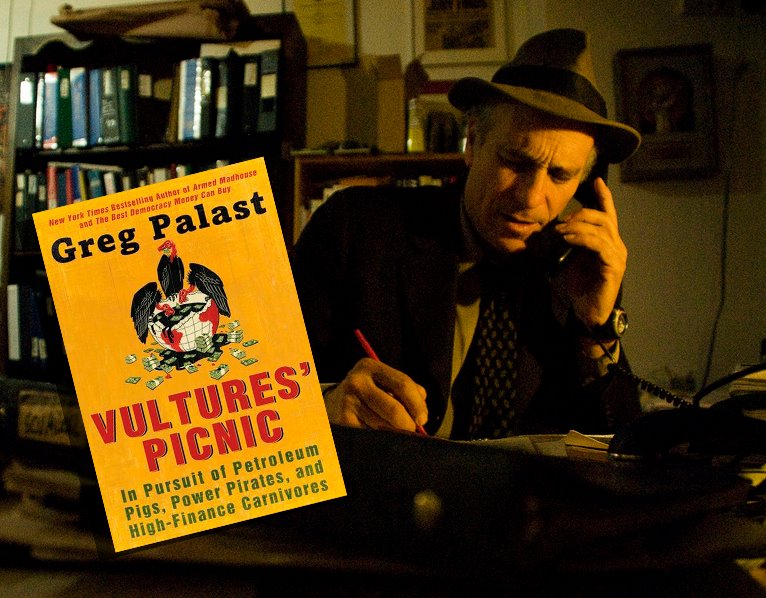A changed news culture has let several important investigative stories slip through the cracks.
In an e-mail uncovered and released by the House Judiciary Committee last month, Tim Griffin, once Karl Rove's right-hand man, gloated that "no [U.S.] national press picked up" a BBC Television story reporting that the Rove team had developed an elaborate scheme to challenge the votes of thousands of African Americans in the 2004 election.
Griffin wasn't exactly right. The Los Angeles Times did run a follow-up article a few days later in which it reported the findings. But he was essentially right. Most of the major U.S. newspapers and the vast majority of television news programs ignored the story even though it came at a critical moment just weeks before the election.
According to Griffin (who has since been dispatched to Arkansas to replace one of the U.S. attorneys fired by the Justice Department), the mainstream media rejected the story because it was wrong.
"That guy is a British reporter who accepted some false allegations and made a story up," he said.
Let's get one fact straight, Mr. Griffin. "That guy" is not a British reporter. I am an American living abroad, putting investigative reports on the air from London for the British Broadcasting Corp.
I'm not going to argue with Rove's minions about the validity of our reporting, which led the news in Britain. But I can tell you this: To the extent that it was ignored in the United States, it wasn't because the report was false. It was because it was complicated and murky and because it required a lot of time and reporting to get to the bottom of it. In fact, not one U.S. newsperson even bothered to ask me or the BBC for the data and research we had painstakingly done in our effort to demonstrate the existence of the scheme.
The truth is, I knew that a story like this one would never be reported in my own country. Because investigative reporting - the kind Jack Anderson used to do regularly and which was carried in hundreds of papers across the country, the kind of muckraking, data-intensive work that takes time and money and ruffles feathers - is dying.
I've been through this before, too many times. Take this investigative report, also buried in the U.S.: Back in December 2000, I received two computer disks from the office of Florida Secretary of State Katherine Harris. Analysis of the data, plus documents that fell my way, indicated that Harris' office had purged thousands of African Americans from Florida's voter rolls as "felons." Florida now admits that many of these voters were not in fact felons. Nevertheless, the blacklisting helped cost Al Gore the White House.
I reported on the phony felon purge in Britain's Guardian and Observer and on the BBC while Gore was still in the race, while the count was still on.
Yet the story of the Florida purge never appeared in the U.S. daily papers or on television. Until months later, that is, after the Supreme Court had decided the election, when it was picked up by the Washington Post and others.
U.S. papers delayed the story until the U.S. Civil Rights Commission issued a report saying our Guardian/BBC story was correct: Innocents lost their vote. At that point, protected by the official imprimatur, American editors felt it safe enough to venture out with the story. But by then, George W. Bush could read it from his chair in the Oval Office.
Again and again, I see this pattern repeated. Until there is some official investigation or allegation made by a politician, there is no story.
Or sometimes the media like to cover the controversy, not the substance, preferring an ambiguous and unsatisfying "he said, she said" report. Safe reporting, but not investigative.
I know some of the reasons why investigative reporting is on the decline. To begin with, investigations take time and money. A producer from "60 Minutes," watching my team's work on another voter purge list, said: "My God! You'd have to make hundreds of calls to make this case." In America's cash-short, instant-deadline world, there's not much room for that.
Are there still aggressive, talented investigative reporters in the U.S.? There are hundreds. I'll mention two: Seymour Hersh, formerly of the New York Times, and Robert Parry, formerly of the Associated Press, who uncovered the Iran-Contra scandal. The operative word here is "formerly." Parry tells me that he can no longer do this kind of investigative work within the confines of a U.S. daily newsroom.
One of the biggest disincentives to doing investigative journalism is that it jeopardizes future access to politicians and corporate elite. During the I. Lewis "Scooter" Libby trial, the testimony of Judith Miller and other U.S. journalists about the confidences they were willing to keep in order to maintain access seemed to me sadly illuminating.
(Note: You can view every article as one long page if you sign up as an Advocate Member, or higher).





